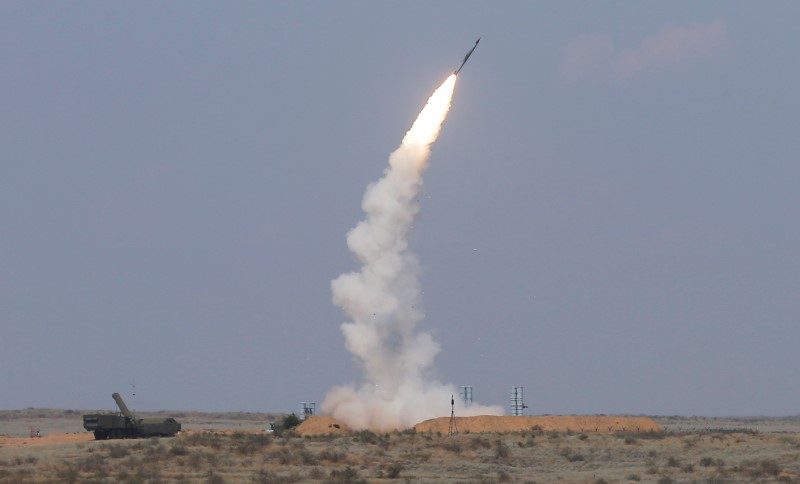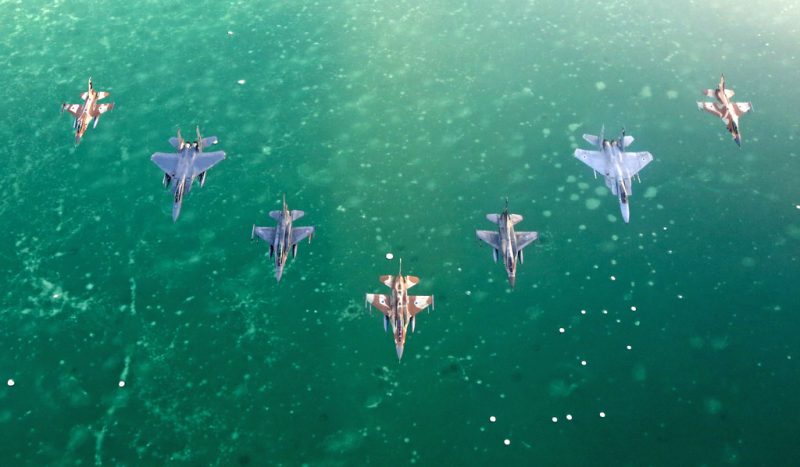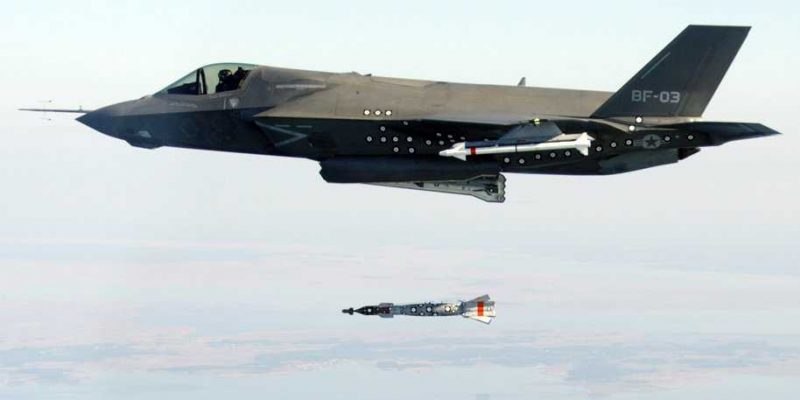Israel received three F-35s from the US on Tuesday, bringing its total inventory of the revolutionary fighter up to five, but according to a French journalist citing French intelligence reports, Israeli F-35s have already carried out combat missions in Syria.
In Air Forces Monthly,Thomas Newdick summarized a report from Georges Malbrunot at the French newspaper Le Figaro that said Israel took its F-35s out on a combat mission one month after getting them from the US.
Malbrunot reported that on January 12, Israeli F-35s took out a Russian-made S-300 air defense system around Syrian President Bashar Assad’s palace in Damascus and a Russian-made Pantsir-S1 mobile surface-to-air missile system set for delivery to Hezbollah in Lebanon.
Israel has repeatedly and firmly asserted that its goal to make sure weapons cannot reach Hezbollah, a terror group that has sworn to seek the destruction of Israel.
In March, Israel said it had conducted an airstrike in Syria.
"When we know about an attempt to smuggle weapons to Hezbollah, we do whatever we can to prevent this from happening, provided we have sufficient information and capabilities to react," Prime Minister Benjamin Netanyahu said, according to Russian state-run media.
However, the other details of the story seem unlikely. The only known S-300 system in Syria is operated by the Russians near their naval base, so hitting that would mean killing Russian service members. There are no reports that this happened.

Tyler Rogoway of The Drive pointed out that the Pantsir-S1 air defenses would bolster Hezbollah in Lebanon, but Israel wouldn't be under immediate pressure to destroy this system. Its jets have advanced air-defense-suppression and electronic-warfare capabilities that limit the threat posed by the Pantsir-S1 and make it unlikely that Israel would risk F-35s to attack it.
But parts of the French report hold up - there was indeed an airstrike on January 12 at the Mezzeh air base. The Syrian government accused Israel of the strike, according to the BBC.
Jeff Halper, the author of "War Against the People," a book that looks at the military ties between Israel and the US, told Al Jazeera that Israeli pilots may be the first to see combat action in the F-35.
"Israel serves as the test-bed for the development of these kinds of new weapons," Halper said. "The F-35 will be tested in the field, in real time, by Israel. The likelihood is that the first time the plane is used in combat will be with Israeli pilots flying it."

The F-35's stealth abilities remain untested, and only in a heavily contested environment could the F-35 really meet its match. In the past, F-35 pilots have complained that surface-to-air threats are not advanced enough to provide realistic training, and the Air Force has run short on adversary services to provide enough competition to prove the F-35's capabilities.
In the case of the S-300, experts have told Business Insider that it would take a stealth jet like the F-35 to safely take it out.
While the details of the strike remain sketchy and unverifiable, Halper's "test-bed" assertion has in the past been true of US-Israeli defense projects, like missile defenses. Rogoway also said Israel's history of rushing new platforms to the front lines was possible supporting evidence.

On Thursday, the Syrian government again accused Israel of an airstrike, this one near Damascus International Airport.
Short of taking responsibility for the attack, Israeli officials said it was a strike on Hezbollah targets, which they support.
According to the BBC, Israeli's intelligence minister, Israel Katz, told Israeli Army Radio: "I can confirm that the incident in Syria corresponds completely with Israel's policy to act to prevent Iran's smuggling of advanced weapons via Syria to Hezbollah in Iran. Naturally, I don't want to elaborate on this."

